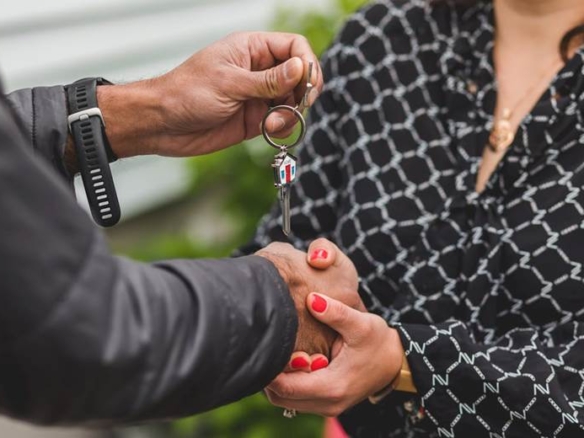A reverse mortgage is a financial instrument that enables homeowners over the age of 62 to convert a portion of their home equity into cash. It can be a valuable option for seniors who need additional funds, as evidenced by the increasing popularity of reverse mortgages. According to data, fiscal year 2022 saw a significant rise in the number of endorsed HECM loans, with a total of 64,437 loans compared to 49,207 loans in fiscal year 2021. This statistic reflects the growing recognition of reverse mortgages as a viable solution for seniors seeking financial flexibility.
However, it’s crucial to understand when a reverse mortgage is a good idea and when it might not be the best choice. In this post, we’ll see why a reverse mortgage loan is beneficial and discuss important factors to consider before making this decision.
Understanding Reverse Mortgages
To fully grasp when a reverse mortgage is appropriate, it’s essential to understand how it works. A reverse mortgage is different from a traditional mortgage in that homeowners receive payments from the lender instead of making monthly payments. These payments can be obtained as a lump sum, a line of credit, fixed monthly payments, or a combination thereof.
Repayment occurs when the homeowner sells the property, moves out, or passes away. It’s essential to acknowledge that the homeowner remains responsible for property taxes, insurance, and maintenance expenses throughout the loan term.
When Is a Reverse Mortgage a Good Idea?
Supplementing Retirement Income
One common scenario in which a reverse mortgage can be a good idea is when retirees need additional income to support their lifestyles. By tapping into their home equity, seniors can receive a steady stream of funds, which can help cover living expenses, healthcare costs, or even travel plans. However, it’s crucial to consider long-term financial needs and develop a plan for managing the income generated from the reverse mortgage.
Paying for Healthcare Expenses
Healthcare costs can be a significant burden for many seniors. A reverse mortgage can provide a viable solution for covering medical expenses. By utilizing the funds from a reverse mortgage, individuals can afford necessary treatments, long-term care, or modifications to their homes to accommodate their health needs. However, it’s crucial to consider the long-term care requirements and potential implications for Medicaid eligibility.
Home Renovations and Modifications
When it comes to making home improvements or modifications, a reverse mortgage can provide a viable solution. By utilizing the funds to enhance your home, you have the potential to increase its value, which can be advantageous if you have plans to sell it in the future. However, it’s crucial to carefully consider the cost of renovations in relation to the loan amount. Striking a balance is important to ensure that your investment yields a positive return.
Delaying Social Security Benefits
Another situation in which a reverse mortgage can be beneficial is when homeowners want to delay claiming their Social Security benefits. By using a reverse mortgage to bridge the income gap, seniors can allow their Social Security benefits to grow, potentially resulting in higher monthly payments later on.
Factors to Consider
While the scenarios mentioned above might indicate when a reverse mortgage can be a good idea, it’s crucial to consider various factors before making a decision.
Interest Rates and Associated Costs
Reverse mortgages come with interest rates and associated costs, such as origination fees and mortgage insurance premiums. It’s important to understand these expenses and evaluate whether the benefits of the reverse mortgage outweigh the costs over the long term.
Long-Term Financial Planning and Goals
Considering your long-term financial goals is essential. A reverse mortgage should align with your overall financial plan and not jeopardize your future financial security. Assessing your retirement savings, investments, and other sources of income is crucial before committing to a reverse mortgage.
Inheritance and Impact on Heirs
If leaving an inheritance to your heirs is a priority, a reverse mortgage will reduce the amount of equity left in the home. It’s important to have open conversations with your loved ones about your decision and its potential impact on their inheritance.
Potential Risks and Drawbacks of Reverse Mortgages
Reverse mortgages come with certain risks, such as the possibility of outliving the loan or being unable to maintain the property. It’s important to understand these risks and consider alternative options if they pose significant concerns.
Final Thoughts
Determining when a reverse mortgage is a good idea requires careful evaluation of individual circumstances and financial goals. While it can provide much-needed funds for retirees, it’s important to consider factors such as retirement income needs, healthcare expenses, home renovations, and the potential impact on heirs.
Before making a decision, consult with a financial advisor to assess whether a reverse mortgage aligns with your overall financial plan.




